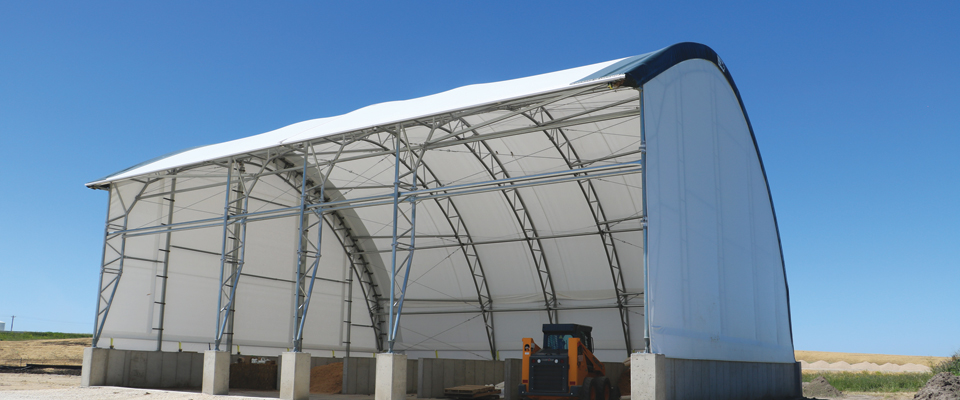A Clean Energy Bill Focuses Attention to the Environment
April 26, 2018
A bill recently unveiled by Massachusetts lawmakers aims to make the state 100 percent reliant on renewable energy by the year 2050. Senator Marc Pacheco, chairman of the Committee on Global Warming and Climate Change, said the bill would substantially reduce greenhouse gas emissions and knock down barriers that prevent businesses from adopting solar energy.
While it is unclear if the bill will pass as it is currently written, it has set the stage for important discussions on clean energy all over the country. The buzz generated by the proposed legislation has made local business owners more aware of their own carbon footprint.
Fabric buildings offer a unique opportunity for energy-reduction when compared with traditionally built structures. White fabric covers eliminate the need for artificial daytime lighting all year, dramatically lowering energy consumption and utility bills. ClearSpan covers are translucent and reflective, allowing for further energy savings by providing indoor temperature stability. ClearSpan buildings stay up to 20 degrees cooler in the summer and 20 degrees warmer in the winter.
To illustrate the exact amount of energy savings a ClearSpan fabric building can offer, consider the following lighting cost analysis. A traditional building measuring 120 by 140 feet requires 40 light fixtures and costs $6,656 to run for a year. A ClearSpan building of the exact same dimensions requires 15 light fixtures and will cost just $456 to run for one year. These are general examples, but they are still a good indicator of how much energy is conserved by sidestepping the need for artificial lighting.
In addition to reducing electrical demands, ClearSpan fabric covers are 100% recyclable. Even the sturdy frames that make up ClearSpan truss arches are made from recycled steel. Very little if any water is needed to keep ClearSpan fabric structures clean. Many fabric building owners simply let the occasional rainfall keep their structures looking brand new.
Although the Massachusetts energy bill gained bipartisan support in the committee, it has to be voted on in the Senate or House and eventually pass through the governor’s office. Perhaps the increased focus on sustainable living practices will draw more attention to the energy efficiency of fabric buildings, both within the business community and at-large.
To find out how ClearSpan can improve the energy-efficiency of your operation, Request a Quote today.

